38 based on your analysis of the food labels from the four foods
Food labels part 1: What's on your food label? In theory, food labels help us make informed - and, ideally, healthier - decisions. Having food and nutrition information available to us in a quick-reference format may help us choose the best foods for our needs. Food labels also ensure that manufacturers are accountable and transparent; in other words, that what you see on the label is ... Nutrition Chapter 9 - Formulation, Analysis, and Labeling: Foods to ... Rations - Nutritionally complete, less expensive, can help prevent food preferences Gourmet - Usually contain a lot of protein and fat but are not necessarily formulated to be complete feeds; animals can form a food preference; the increased protein and fat can lead to degenerative problems if fed over a long period.
Would carbon food labels change the way you shop? - FT Climate footprint of selected foods, in kgCO 2 eq/kg 0 5 10 15 20 Cheddar 14.2 Mozzarella 8.7 Plant-based cheese 2.6 Milk, full-fat 1.9 Rice milk 0.7 Oat milk 0.4 Soya milk 0.4 "It's true...
Based on your analysis of the food labels from the four foods
A Meta-Analysis of Food Labeling Effects on Consumer Diet ... - PubMed Context: The influence of food and beverage labeling (food labeling) on consumer behaviors, industry responses, and health outcomes is not well established. Evidence acquisition: PRISMA (Preferred Reporting Items for Systematic Reviews and Meta-Analyses) guidelines were followed. Ten databases were searched in 2014 for studies published after 1990 evaluating food labeling and consumer purchases/orders, intakes, metabolic risk factors, and industry responses. Introduction to Food Analysis | SpringerLink Chemical analysis of foods is an important part of a quality assurance program in food processing, from ingredients and raw materials, through processing, to the finished products (3-7).Chemical analysis also is important in formulating and developing new products, evaluating new processes for making food products, and identifying the source of problems with unacceptable products (Table 1-1). (PDF) Food Labeling: Analysis, Understanding, and Perception - ResearchGate FOP labeling aims to help consumers make healthier choices at the point of purchase and to incentivize food manufacturers to reduce the content of nutrients that might compromise diet quality...
Based on your analysis of the food labels from the four foods. Food Labeling & Nutrition | FDA Food labeling is required for most prepared foods, such as breads, cereals, canned and frozen foods, snacks, desserts, drinks, etc. Nutrition labeling for raw produce (fruits and vegetables) and ... Foods | Free Full-Text | Analysis of Food Labels to Evaluate the ... Analysis of Food Labels to Evaluate the Nutritional Quality of Bread Products and Substitutes Sold in Italy: Results from the Food Labelling of Italian Products (FLIP) Study by Donato Angelino 1, Alice Rosi 2, Emilia Ruggiero 3, Daniele Nucci 4, Gaetana Paolella 5, Veronica Pignone 6, Nicoletta Pellegrini 7,*, Daniela Martini CHAPTER 2: METHODS OF FOOD ANALYSIS - Food and Agriculture Organization 4) "Dietary fibre" is a useful concept that is familiar to consumers and should be retained on food labelling and in food tables. Because the physical characteristic of solubility/insolubility does not strictly correlate with fermentability/non-fermentability, the distinction between soluble and insoluble fibre is not of value in energy evaluation, nor is it of value to the consumer. ANALYSIS OF FOOD PRODUCTS - UMass These regulations specify the type and amounts of ingredients that certain foods must contain if they are to be called by a particular name on the food label. For some foods there is a maximum or minimum concentration of a certain component that they must contain, e.g., "peanut butter" must be less than 55% fat, "ice-cream" must be greater than 10% milk fat, "cheddar cheese" must be greater than 50% milk fat and less than 39% moisture.
Understanding Food Labels - Nutrition: Science and Everyday Application ... The FDA uses the following definitions for interpreting the %DV on food labels:4 5%DV or less means the food is low in a nutrient. 10% to 19%DV means the food is a "good source" of a nutrient. 20%DV or greater means the food is high in a nutrient. Patient Understanding of Food Labels: - ScienceDirect The nutrition facts panel typically consists of the following components: (1) serving size information, (2) calorie information, (3) percent daily value (based on a 2000-calorie diet), (4) nutrient information, and (5) a footnote of recommended daily values for standard 2000- and 2500-calorie diets. How to Understand and Use the Nutrition Facts Label | FDA Dietary fiber, vitamin D, calcium, iron ad potassium are nutrients on the label that Americans generally do not get the recommended amount of. They are identified as nutrients to get more of.... What is Nutritional Analysis? - Nutritional Analysis and Food Label ... The main concern with database analysis is that the results be truthful and not misleading compared to what the FDA would find when performing chemical analysis on the food. For database nutrition analysis the results are only as good as the recipe information provided to the analyst and the quality of the nutrient data used. When the ...
Understanding Food Labels - The Nutrition Source Under the Food Allergen Labeling and Consumer Protection Act of 2004, eight major food allergens—milk, fish, tree nuts, peanuts, shellfish, wheat, eggs, and soybeans—are required to be listed in a "contains" statement near the Ingredients list if present in a food. An example would be "contains wheat, milk, and soy.". How Do They Calculate Calories on Food Labels? It's important to recognize that 4-9-4 is an average, and not an exact amount. For example, 1 gram of fat in one food may yield 8.34 calories while 1 gram of fat from another food yields 9.7 calories. The same thing happens with carbohydrate and protein: the 4-9-4 is an average, not an exact amount. Also, the NLEA labeling rules require that ... The Evolution of Food Labels: A Timeline | 48HourPrint In the 1850s, the industrialization of agriculture, the invention of heavy machinery and transportation, and breakthroughs in food production and preservation led to the requirement of food labels. Small farmers stopped growing their own food and started purchasing cheaper goods from the supermarket. The invention of canning and refrigeration ... How to Read the Ingredient Labels and Guaranteed Analysis on Dry Pet Foods When you look at this guaranteed analysis for this pet food, it's super basic… All they show here is percentages of the protein, fat, fibre, and moisture. It's important to note that the fibre labelled in the guaranteed analysis is not the same as starch (ie. sugar), and it's just as important to know how much starch/sugar you're feeding your pet.
Analyzing and Utilizing Food Labels Essay Example | GraduateWay One of my favorites is Brown Cow Farm Nonfat Yogurt, Apricot Mango. Its label claims that the product is "nonfat". To be more detailed, the list of this yogurt's ingredients includes cultured pasteurized nonfat milk. Moreover, the list of yogurt's nutrients states that it contains total fat - 0%, saturated fat - 0%, and cholesterol - 0%.
Introduction to Food Analysis | SpringerLink All food products require analysis of various characteristics (i.e., chemical composition, microbial content, physical properties, sensory properties) as part of a quality management program, from raw ingredients, through processing, to the final product. Of course, food analysis is also used extensively for research on foods and food ingredients.
Unit 2 PBS Flashcards | Quizlet Based on your analysis of the food labels from the four foods, would you change your opinion of which foods you considered to be healthy (Step 4)? Explain your answer. Yes, foods that I thought to be healthy were actually high in carbohydrates, which isn't good for you, especially people with diabetes.
Analysis of the policy process for the implementation of nutritional ... FOP nutrition labelling comprises labels positioned on the FOP to provide a simplified summary of the nutritional composition of foods and beverages (Reference van Kleef and Dagevos 11). This policy intends to empower citizens to make informed food choices and could serve as a 'nudge' to improve the healthfulness of their diet ( Reference ...
2 Based on your analysis of the food labels from the four foods would ... 2 Based on your analysis of the food labels from the four foods would you change from HBS 9 at Martin High School
The Effects of Nutrition Knowledge on Food Label Use: A Review of the ... Support was found for the knowledge-is-power position relating to food label use. Most studies focused on nutrition labels, few included claims and ingredient lists. Nutrition knowledge supported food label use across a range of knowledge measures. More research with representative samples and wider age ranges is needed. Contributor Information
Food Label Accuracy of Common Snack Foods - PMC To investigate label accuracy of popular energy-dense snack foods in North America, we used a convenience sample of well-known snack food brands from the following eight categories: 1) candy bars, 2) chips, 3) cereal bars and pastries, 4) cookies, 5) crackers, 6) ice cream, 7) nuts & nut mixes and 8) yogurt.
How To Read Food and Beverage Labels - National Institute on Aging To help avoid confusion, the FDA sets specific rules for what food manufacturers can call "light," "low," "reduced," "free," and other terms. This type of labeling may have little to do with how nutritious the food is. Here are some examples and what they mean: Light.
The Importance of Food Labeling Free Essay Example There are many food allergies and food producers must label foods that have any of the major food allergens in them, like milk, eggs, fish, shellfish and tree nuts. According to the FDA two percent of adults and five percent of infants and young children have allergies in the United States and 30,000 people are treated in emergency rooms per ...
Method of production claims on food labels - Canadian Food Inspection ... The National standard of Canada for Voluntary labelling and advertising of foods that are and are not products of genetic engineering (Standard), developed by the Canadian General Standards Board, provides criteria for making voluntary labelling and advertising claims that identify foods sold in Canada that are or are not products of genetic engineering. It includes detailed information including criteria for claims on both single and multi-ingredient foods, verification, and examples of claims.
The Top Four Food Labeling Basics You Need to Know - LabelCalc Before we jump into each of the top four components of food labels, it is important to let go of the notion that food labeling has to be complex, time-consuming, or expensive. Many food manufacturers have told me they went into the process expecting it to be super complicated, only to end up creating more work for themselves because they thought it should be a lot of work.
(PDF) Food Labeling: Analysis, Understanding, and Perception - ResearchGate FOP labeling aims to help consumers make healthier choices at the point of purchase and to incentivize food manufacturers to reduce the content of nutrients that might compromise diet quality...
Introduction to Food Analysis | SpringerLink Chemical analysis of foods is an important part of a quality assurance program in food processing, from ingredients and raw materials, through processing, to the finished products (3-7).Chemical analysis also is important in formulating and developing new products, evaluating new processes for making food products, and identifying the source of problems with unacceptable products (Table 1-1).
A Meta-Analysis of Food Labeling Effects on Consumer Diet ... - PubMed Context: The influence of food and beverage labeling (food labeling) on consumer behaviors, industry responses, and health outcomes is not well established. Evidence acquisition: PRISMA (Preferred Reporting Items for Systematic Reviews and Meta-Analyses) guidelines were followed. Ten databases were searched in 2014 for studies published after 1990 evaluating food labeling and consumer purchases/orders, intakes, metabolic risk factors, and industry responses.
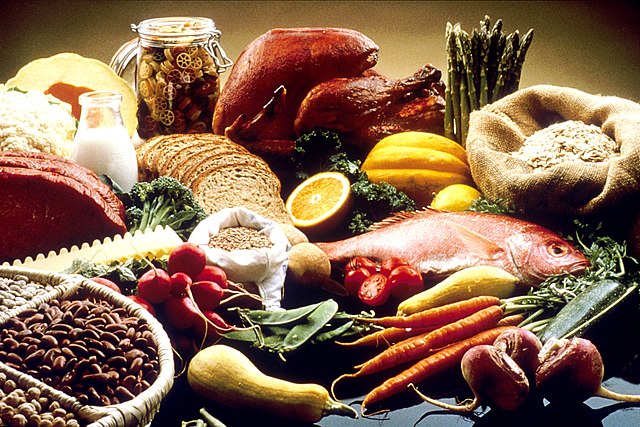
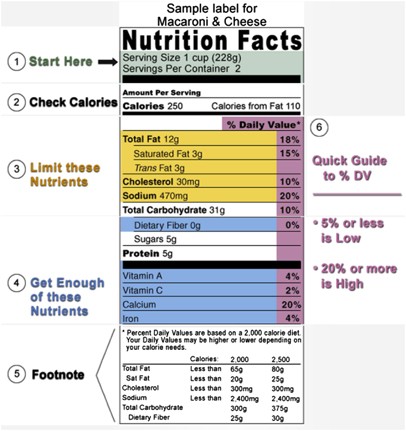



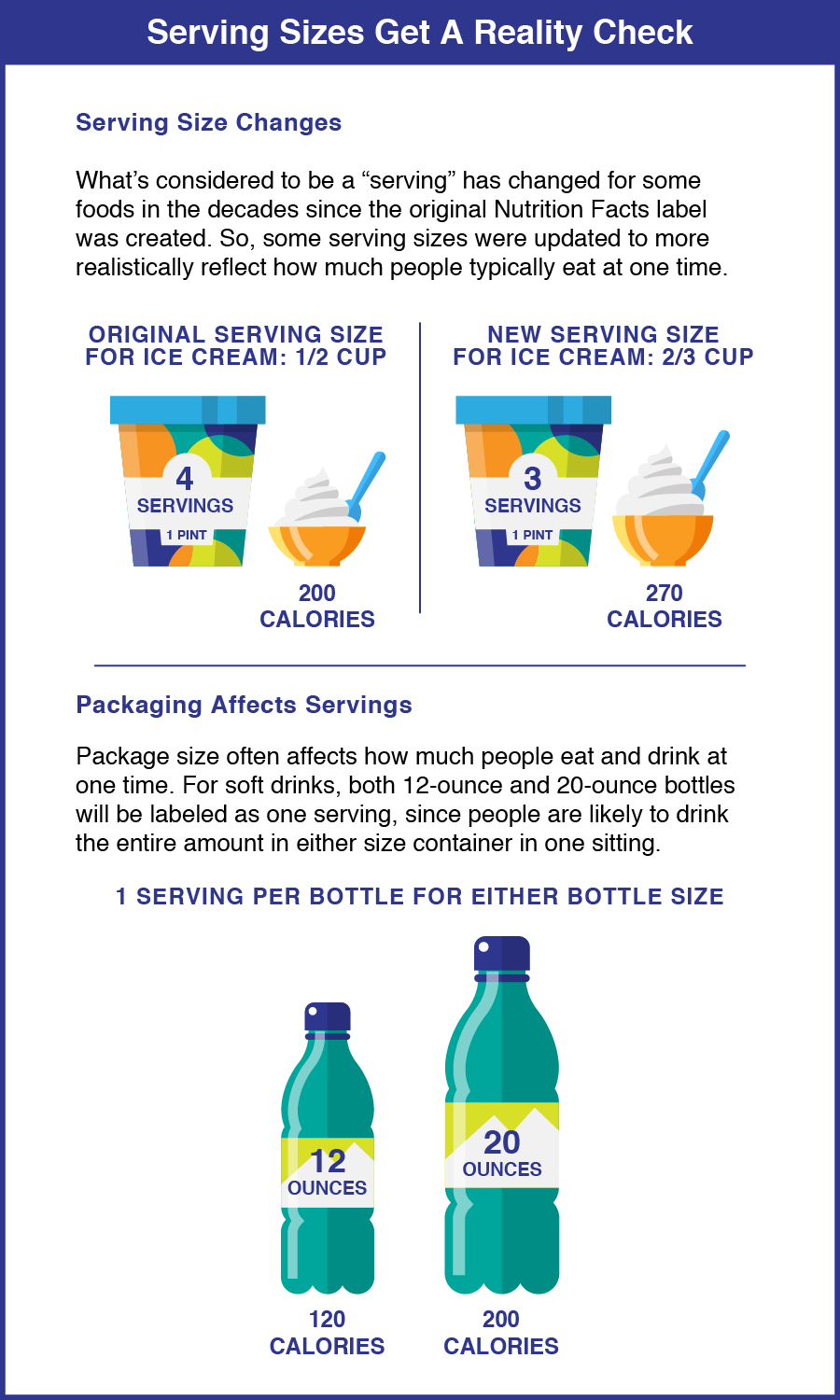


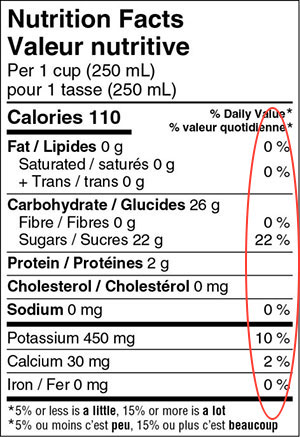
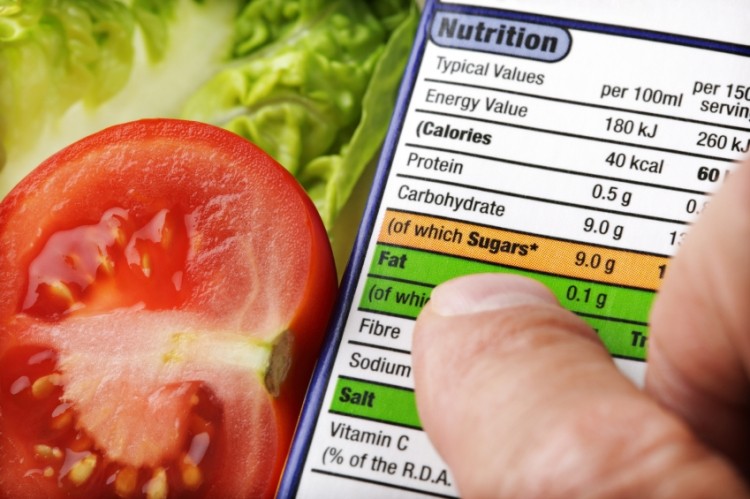
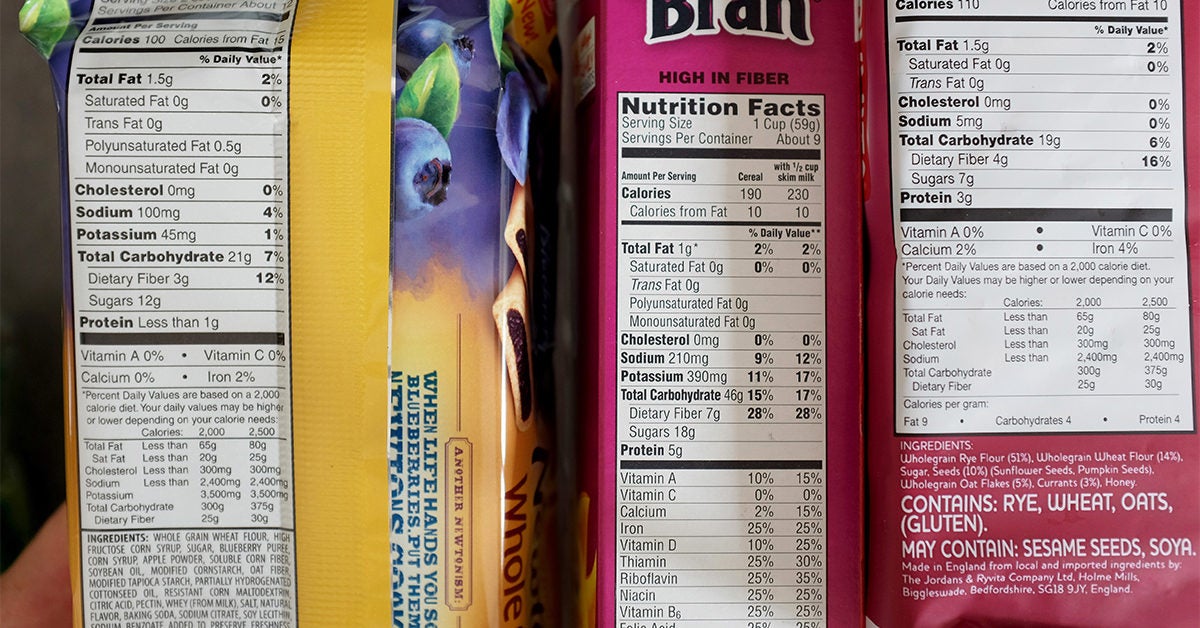
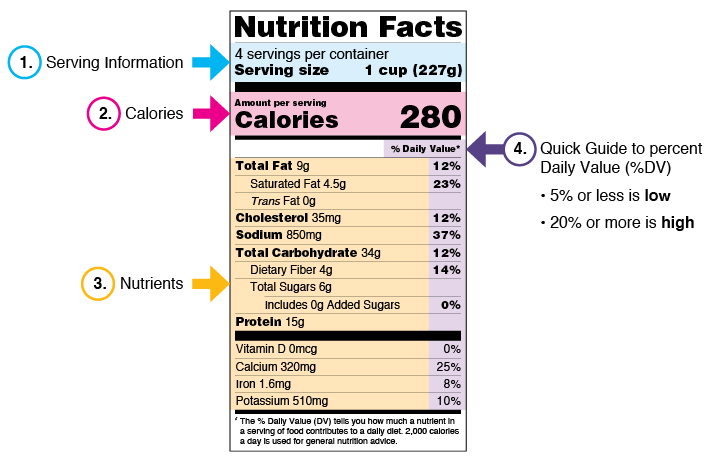






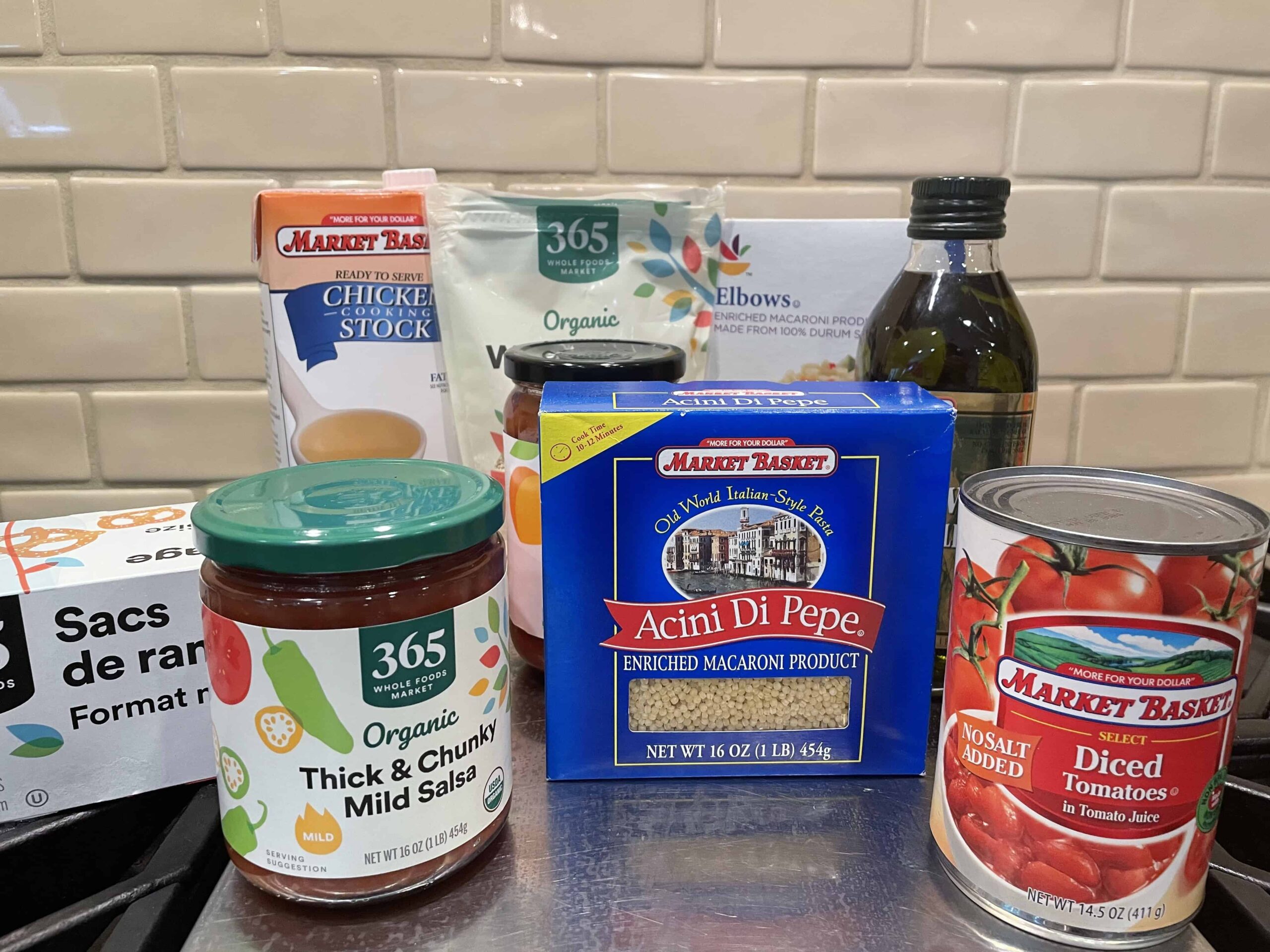


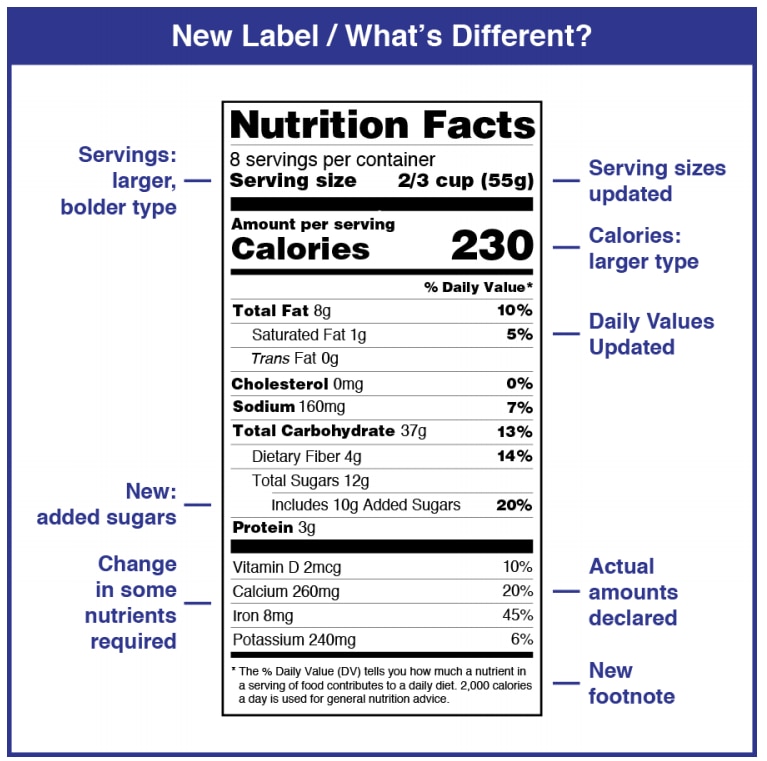
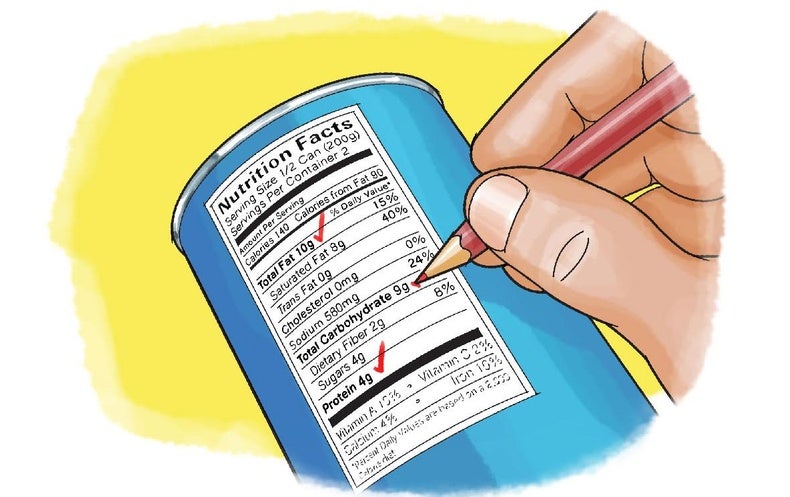
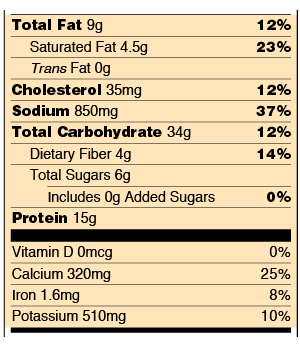

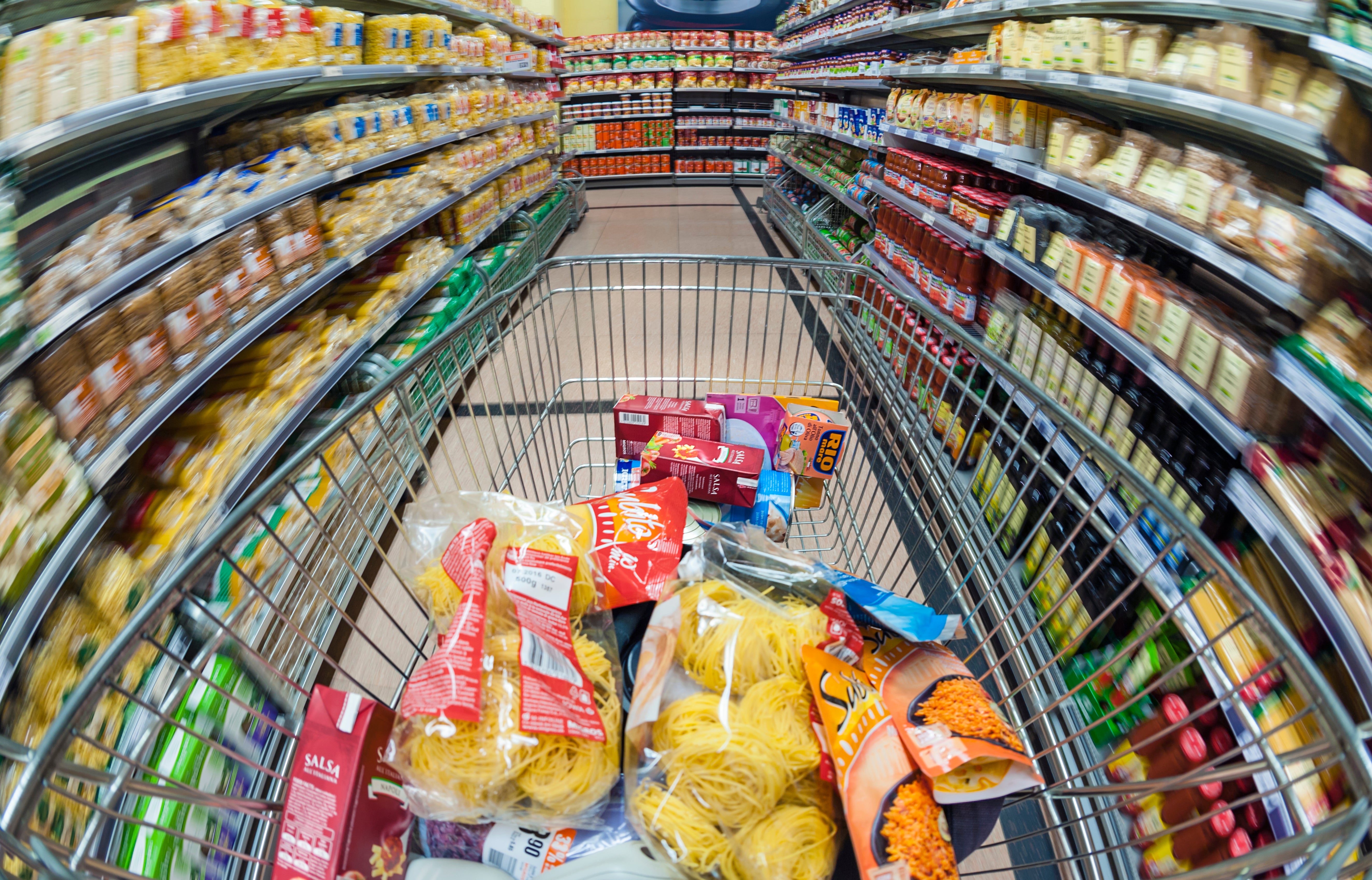



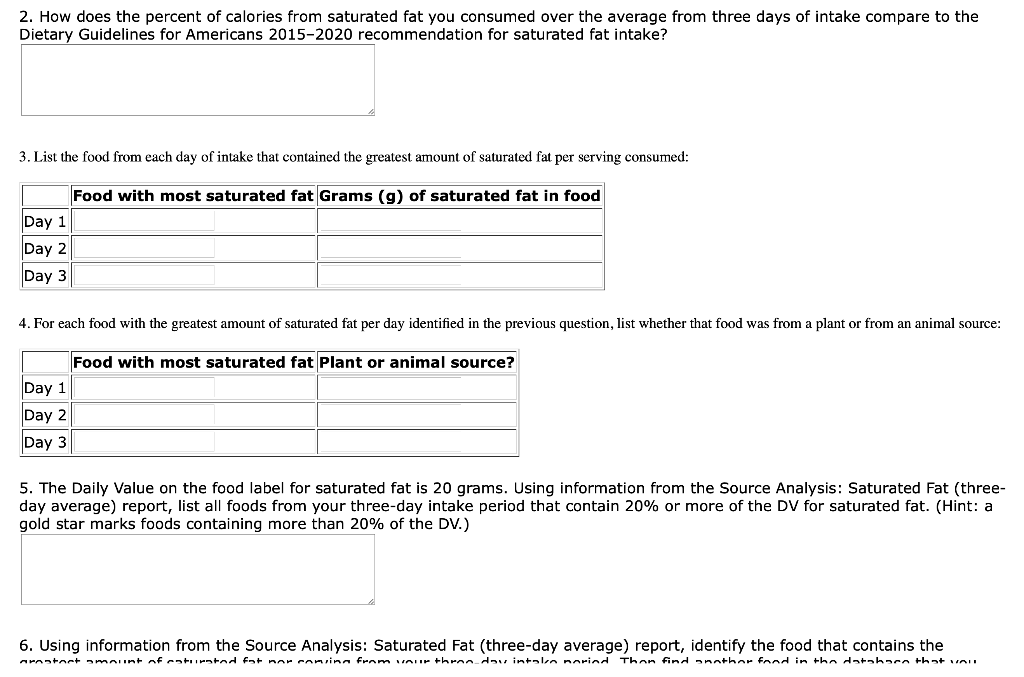






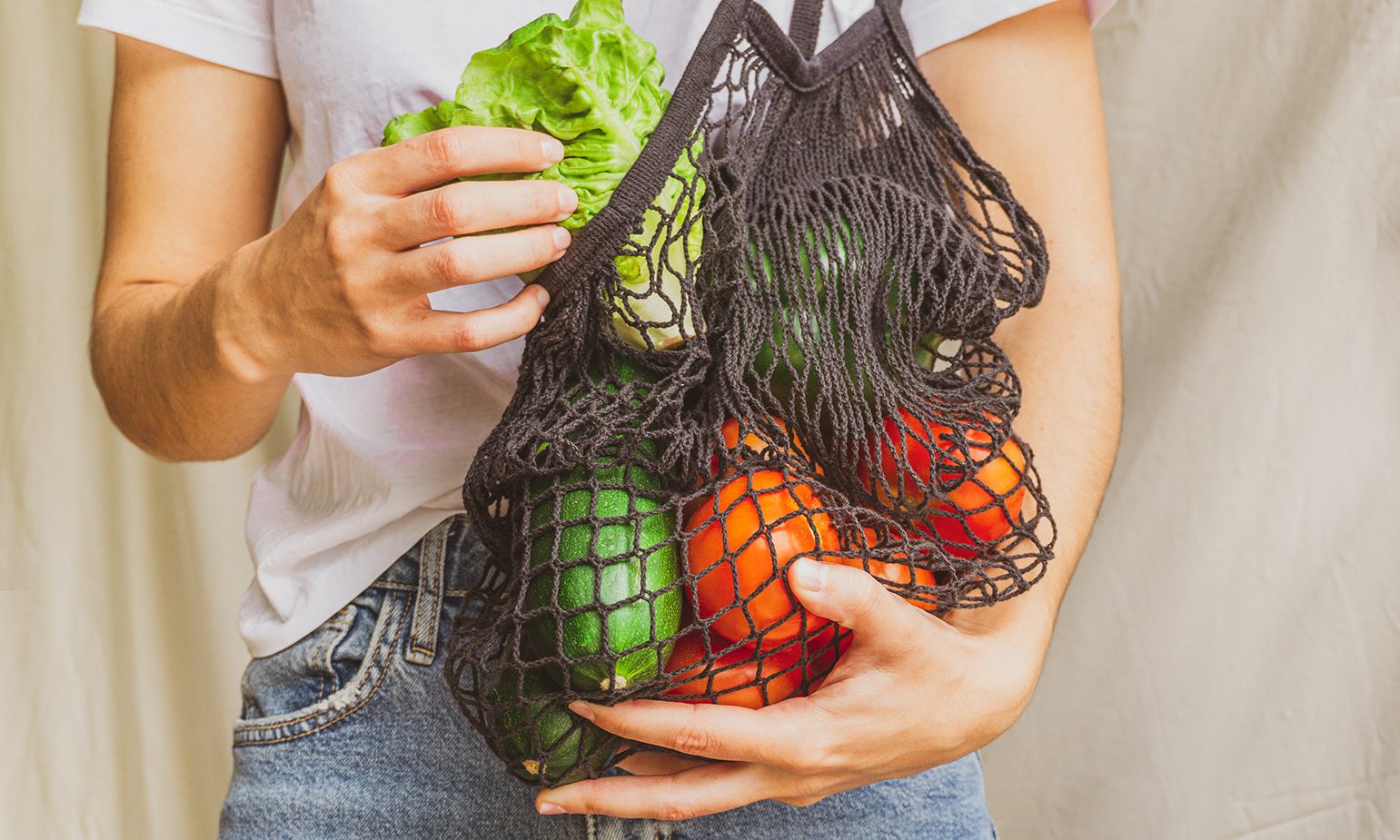
Post a Comment for "38 based on your analysis of the food labels from the four foods"